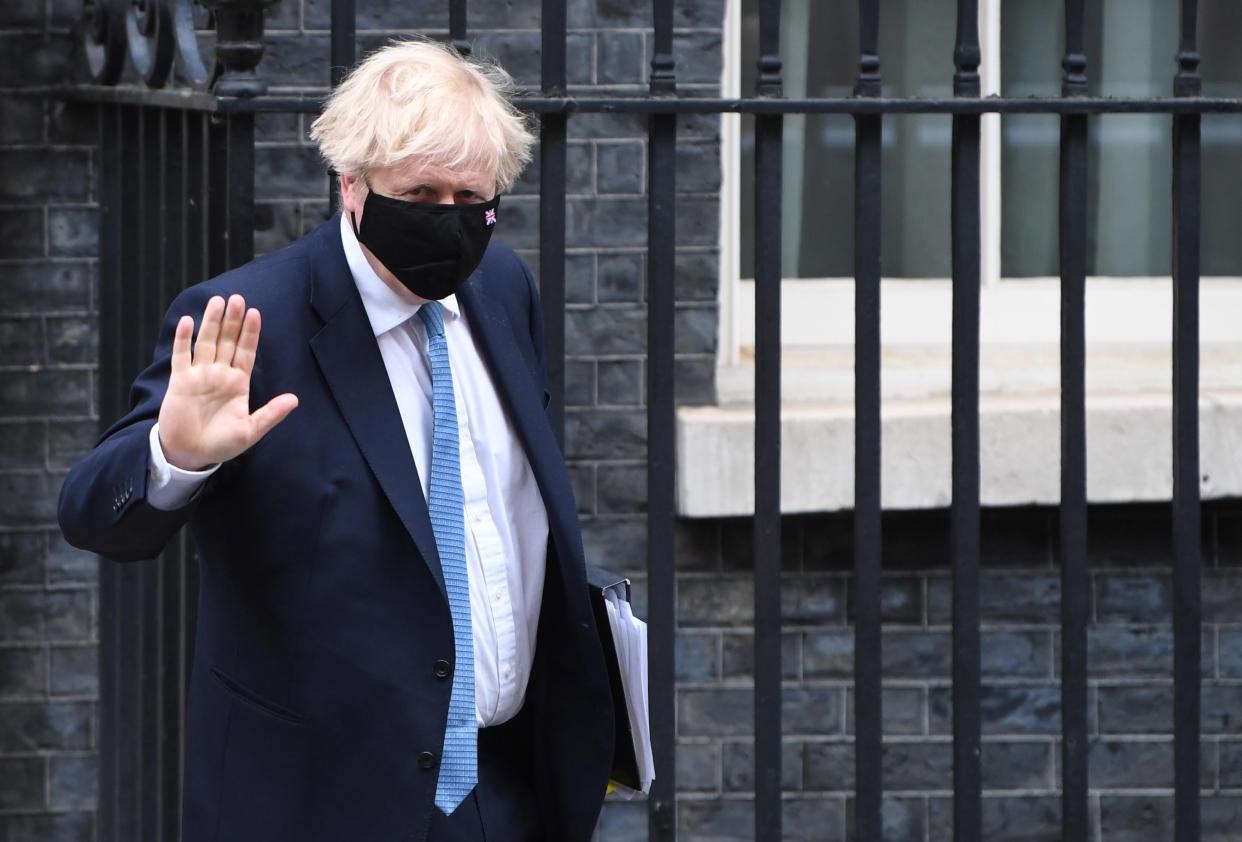Next winter could be even worse if Covid variants elude vaccines, Boris Johnson warns

The Prime Minster leaves Downing Street to address Parliament on Wednesday
(EPA)Boris Johnson has issued an extraordinary warning of even “greater suffering” next winter than the public endured this year, if new Covid-19 variants take root.
Delaying his promised inquiry until next spring, the prime minister told MPs: “There is, in any case, a high likelihood of a surge this winter.”
The warning – which jars with Mr Johnson’s own statement on Monday that the country will return “close to normal” next month – came despite the success of the vaccination programme.
He said: “Our own scientific advisers judge that, although more positive data is coming in and the outlook is improving, there could still be another resurgence in hospitalisations and deaths.
“We also face the threat of new variants and, should they prove highly transmissible and elude the protection of our vaccines, they would have the potential for even greater suffering than we endured in January.”
On Monday, the prime minister promised full details of “the end of social distancing” within three weeks, pressing the accelerator on a review into the lifting of all Covid-19 rules.
But, in a strikingly more sombre statement, he said: “The end of the lockdown is not the end of the pandemic.
“The World Health Organisation has said that the pandemic has now reached its global peak and will last throughout this year.”
Mr Johnson did provide some cheer for campaigners and Opposition parties by finally setting out the format of the Covid-19 inquiry he has been promising for almost a year which would have full powers.
He said: “I can confirm today that the government will establish an independent public inquiry on a statutory basis, with full powers under the Inquiries Act 2005 – including the ability to compel the production of all relevant materials and take oral evidence in public under oath.”
But he added: “This process will place the state’s actions under the microscope and we should be mindful of the scale of that undertaking and the resources required to do it properly.
“So, I expect that the right moment for the inquiry to begin is at the end of this period in the spring of next year, spring 2022.”
The delay means the inquiry will not start until two years after the pandemic broke out and – perhaps crucially – is unlikely to report back until after the next general election, which could be early as 2023.
The prime minister also announced a “commission on Covid commemoration” will be established, to allow people to, “come together and to cherish the memories of those who have been lost”.
“Communities across the whole country will want to find ways of commemorating what we have all been through, so the government will support their efforts,” he said.
The commission would, “remember the loved ones we have lost, honour the heroism of those who have saved lives and the courage of frontline workers who have kept our country going, celebrate the genius of those who created the vaccines and commemorate the small acts of kindness and the daily sacrifice of millions who stayed at home buying time for our scientists to come to our rescue”, he added.
Read More
Boris Johnson announces university students to return to campuses in England
Boris Johnson issues official government apology for Ballymurphy Army killings

 Yahoo News
Yahoo News 
